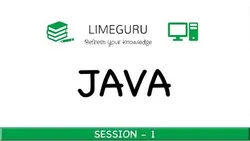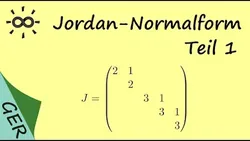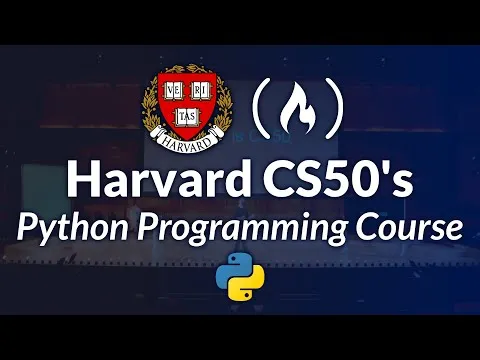
Java Tutorial For Beginners 
This Java Tutorial For Beginners provides an introduction to the Java programming language, its features and benefits, and how to set up the necessary software and tools. It covers topics such as the Hello World program, variables, data types, and operators. It is a great resource for those just starting out with Java. ▼
ADVERTISEMENT
Course Feature
![]() Cost:
Cost:
Free
![]() Provider:
Provider:
Youtube
![]() Certificate:
Certificate:
Paid Certification
![]() Language:
Language:
English
![]() Start Date:
Start Date:
On-Demand
Course Overview
❗The content presented here is sourced directly from Youtube platform. For comprehensive course details, including enrollment information, simply click on the 'Go to class' link on our website.
Updated in [February 21st, 2023]
What does this course tell?
(Please note that the following overview content is from the original platform)
Introduction To Java - What Is Java - Java Tutorial For Beginners.
Java Features And Benefits - Java Tutorial For Beginners.
Java Software And Tools Setup - JDK, IntelliJ, Eclipse Introduction - Java Tutorial For Beginners.
Hello World Program In Java - Create Your First Java Project - Java Tutorial For Beginners.
Java Classes, Java Objects And Java Functions - Deep Dive - Java Tutorial For Beginners.
Data Types In Java - Integer, Decimal, String, Character And Boolean - Java Tutorial For Beginners.
Instance Variables And Local Variables In Java - Java Tutorial For Beginners.
Inheritance In Java - Java Tutorial For Beginners.
Learn Lambda Expression In Java In 10 Minutes | Lambda Expression Tutorial (Hands-on Tutorials).
We consider the value of this course from multiple aspects, and finally summarize it for you from three aspects: personal skills, career development, and further study:
(Kindly be aware that our content is optimized by AI tools while also undergoing moderation carefully from our editorial staff.)
Learners can learn the basics of Java programming from this tutorial. They can learn about the features and benefits of Java, how to set up the software and tools, and how to create their first Java project. They can also learn about Java classes, objects, and functions, as well as data types such as integers, decimals, strings, characters, and booleans. Additionally, learners can learn about instance variables and local variables, inheritance, and lambda expressions. With this tutorial, learners can gain a comprehensive understanding of the fundamentals of Java programming and be well-prepared to move on to more advanced topics.
[Applications]Learners can apply their knowledge of Java to create their own applications. They can use the tools and software setup they learned in the course to create their own projects. Learners can also use the concepts of classes, objects, functions, data types, instance variables, local variables, and inheritance to create more complex applications. Additionally, learners can use the knowledge of lambda expressions to create more efficient code.
[Recommend Books]Java: A Beginner's Guide, Eighth Edition by Herbert Schildt: This book is an excellent resource for beginners to learn the fundamentals of Java programming. It covers topics such as variables, data types, operators, classes, objects, methods, and more. It also includes examples and exercises to help readers understand the concepts better.
[Career Paths]1. Java Developer: Java Developers are responsible for developing and maintaining applications using the Java programming language. They are responsible for writing code, debugging, testing, and deploying applications. They must have a strong understanding of object-oriented programming and be able to work with a variety of development tools. The demand for Java Developers is increasing as more companies are looking to develop applications using the Java language.
2. Java Architect: Java Architects are responsible for designing and developing large-scale applications using the Java programming language. They must have a strong understanding of object-oriented programming and be able to work with a variety of development tools. They must also be able to design and develop applications that are scalable and secure. The demand for Java Architects is increasing as more companies are looking to develop applications using the Java language.
3. Java Web Developer: Java Web Developers are responsible for developing and maintaining web applications using the Java programming language. They must have a strong understanding of object-oriented programming and be able to work with a variety of development tools. They must also be able to design and develop web applications that are secure and user-friendly. The demand for Java Web Developers is increasing as more companies are looking to develop web applications using the Java language.
4. Java Mobile Developer: Java Mobile Developers are responsible for developing and maintaining mobile applications using the Java programming language. They must have a strong understanding of object-oriented programming and be able to work with a variety of development tools. They must also be able to design and develop mobile applications that are secure and user-friendly. The demand for Java Mobile Developers is increasing as more companies are looking to develop mobile applications using the Java language.
Course Provider

Provider Youtube's Stats at AZClass
Over 100+ Best Educational YouTube Channels in 2023.
Best educational YouTube channels for college students, including Crash Course, Khan Academy, etc.
AZ Class hope that this free Youtube course can help your Java skills no matter in career or in further education. Even if you are only slightly interested, you can take Java Tutorial For Beginners course with confidence!
Discussion and Reviews
0.0 (Based on 0 reviews)
Explore Similar Online Courses

What is Scalar and Vectors And Its Practical Applications In Machine Learning

Ink & Watercolor Botanicals on Your iPad in Procreate + FREE Watercolor Brushes

RDBMS PostgreSQL

Intro To PostgreSQL Databases With PgAdmin For Beginners

PostgreSQL: Client Applications

Mastering SQL using Postgresql

Database Design and Basic SQL in PostgreSQL

PostgreSQL: Advanced Queries

Spatial SQL with Postgres : A language for geographers

Learn SQL Using PostgreSQL: From Zero to Hero

PostgreSQL Essential Training


Start your review of Java Tutorial For Beginners